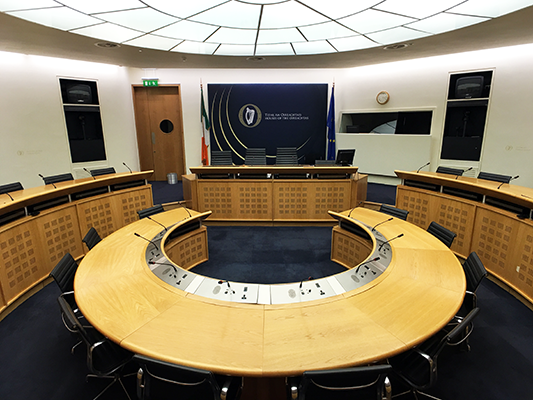
The voices of people opposed to the introduction of assisted suicide must be fairly heard, the chair of an Oireachtas Committee discussing the topic has insisted.
Chairman of the Joint Committee on Assisted Dying, Kerry TD Michael Healy-Rae, told The Irish Catholic newspaper that it is of “vital importance” that the Committee does its work “in an extremely fair fashion, and that everybody, whatever their viewpoint will get heard”.
Independent Senator Rónán Mullen, who’s also on the Committee, told The Irish Catholic that it’s his sense that Mr Healy-Rae is determined to be “scrupulously fair” as Committee chair, and that it is his hope that there will be a “greater freedom” to engage with and listen to those coming before the committee, “including those with expertise in working with people in end of life settings, those with expertise in palliative care settings and so on”.
Senator Mullen also welcomed the clarification from the Committee that it has full freedom to recommend against the introduction of assisted suicide if it sees fit.
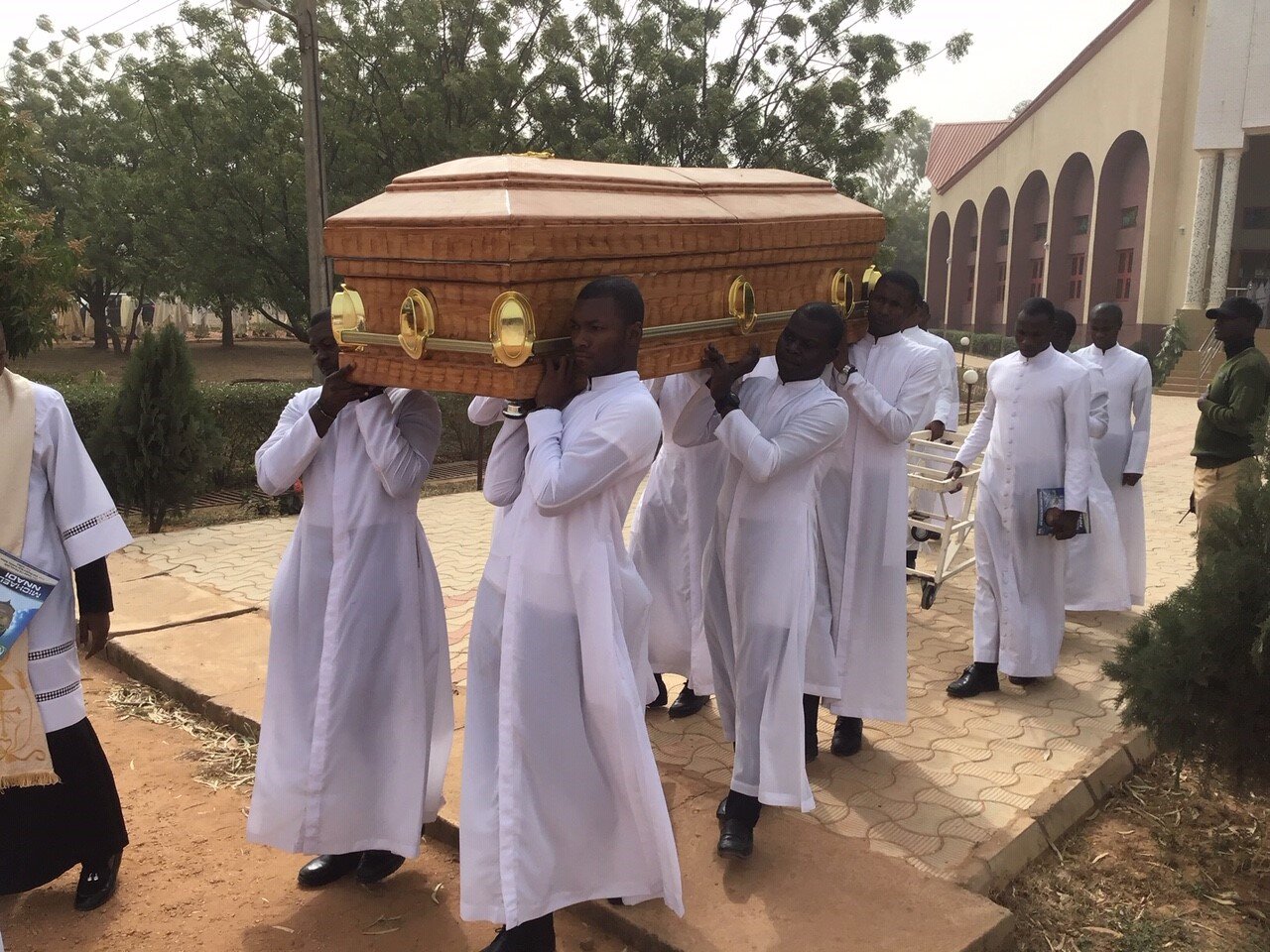
A 5-year-old boy was reportedly beheaded when Islamists attacked a village in southern Kaduna State, Nigeria, leaving dozens of people dead.
In the April 15 attack, the killers descended on Runji village in Zangon Kataf Local Government Area (LGA) of southern Kaduna State, leaving 33 people dead, among them 14 children.
Condemning the attack in a Tuesday, April 18, report, Christian Solidarity Worldwide (CSW) called on the international community to put pressure on the Nigerian government to end the killing of innocent civilians in the West African country.
CSW’s press and public affairs team leader, Kiri Kankhwende, said he finds it regrettable that attacks continue on Nigerians in Kaduna and Benue States unabated as the international community does little to help.
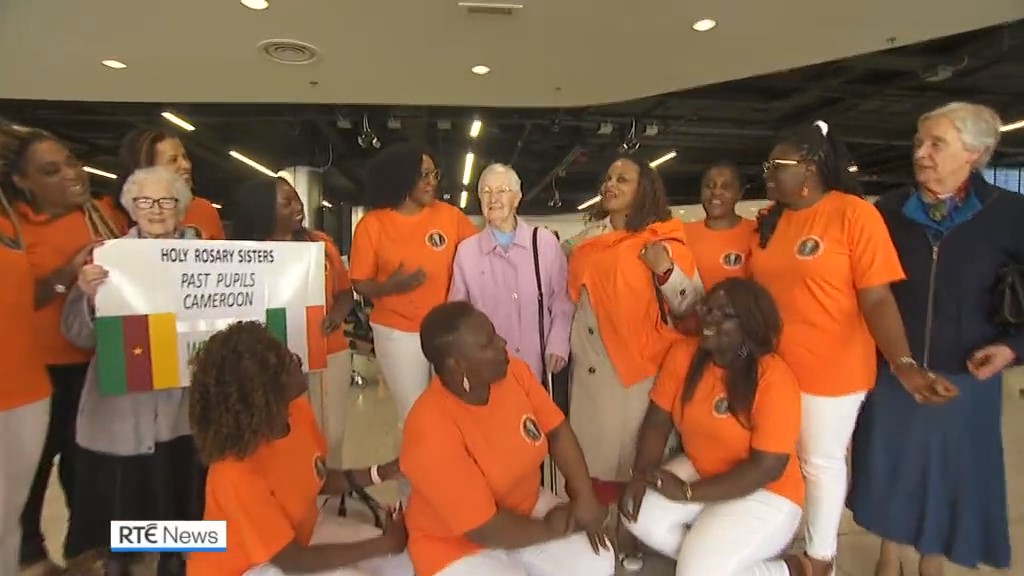
There were emotional scenes at Dublin Airport as a group of women arrived to show their appreciation for Irish nuns who taught them in Cameroon during the 1980s.
The 21 former students from Our Lady of Lourdes Secondary School for girls in Mankon touched down in Ireland yesterday afternoon.
The group, who called themselves the “Pacesetters”, include members who earned PhDs and Masters with careers in engineering, nursing, medicine and more.
The class of 1986 were met by seven nuns from the Holy Rosary Sisters, who were former principals and teachers at the school.
Dr Claire Minang, said the nuns taught them “self-confidence and they made us understand that we matter, that we are enough as women in this masculine world.”
“We got out of there with so much more, knowing that we could be whatever we want to be”.
The former principal of the school, Sister Mary Neville, who spent 30 years in Cameroon said of the occasion: “It’s marvellous, it’s hard to believe, it’s extraordinary.”
She added that the reunion was “absolutely, very, very special.”
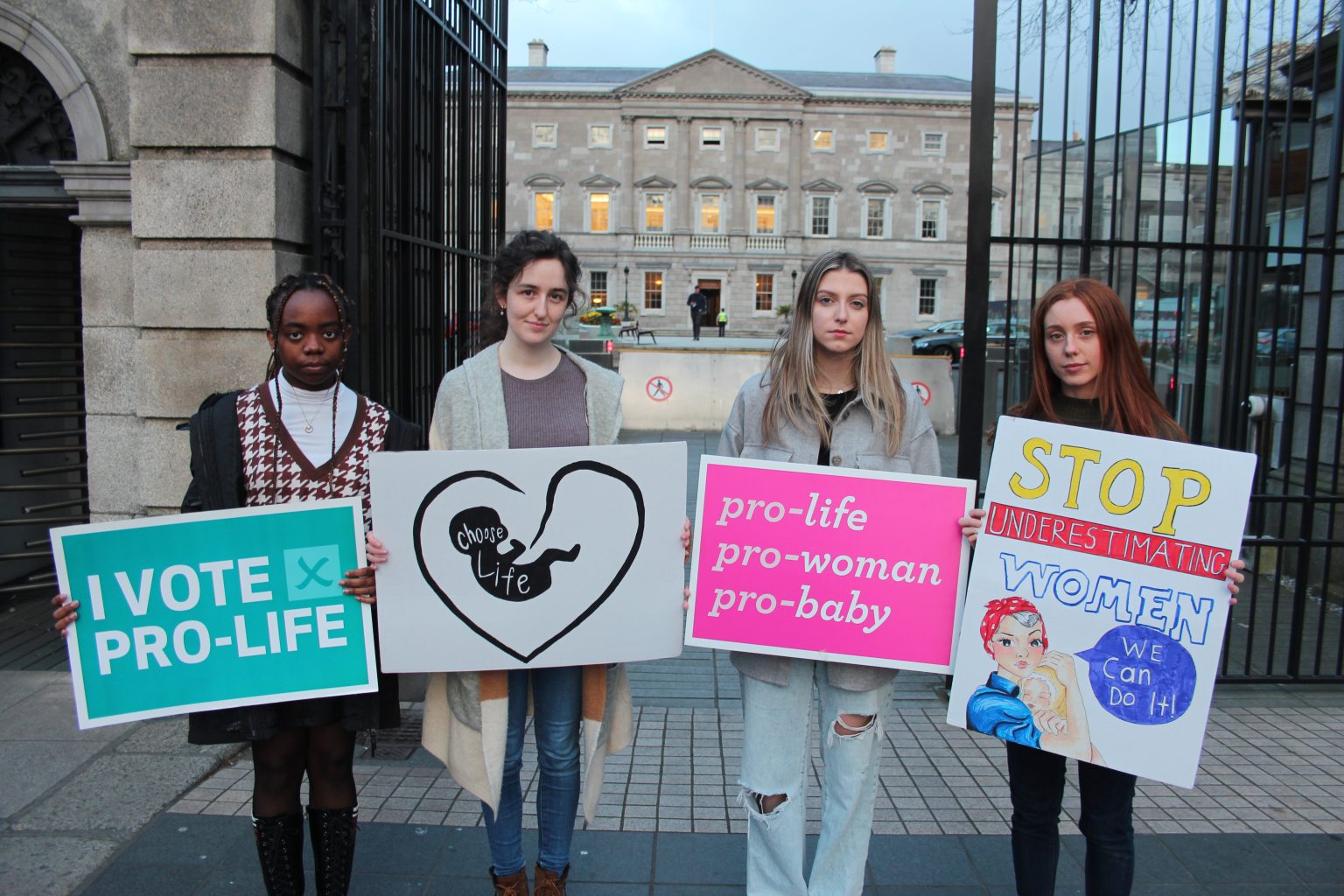
The abortion law review has been criticised over the research it cites to justify removing the three day waiting time for abortion.
The review author referenced a 2021 study of 475 women which found only 11 (or 2% of the total) did not return for a second consultation. However, the official figures from the HSE were overlooked. Those show that of approximately 23,000 women who made an initial abortion appointment, 3,951 did not return for an abortion. This represents 17% of the women compared to the 2% figure cited in the review’s report.
Commenting, Pro Life Campaign spokesperson, Eilís Mulroy, said it’s “absolutely incredible” that the report could recommend such a drastic change based on “an outlier study of a small sample of women, yet it ignores the overall national evidence made publicly available by the HSE”.
She added: “Inexplicably, the author of this much-vaunted ‘independent’ report ignored the official national statistics from the HSE, but instead cited a study based on data collected by the pro-abortion campaigning group START.”
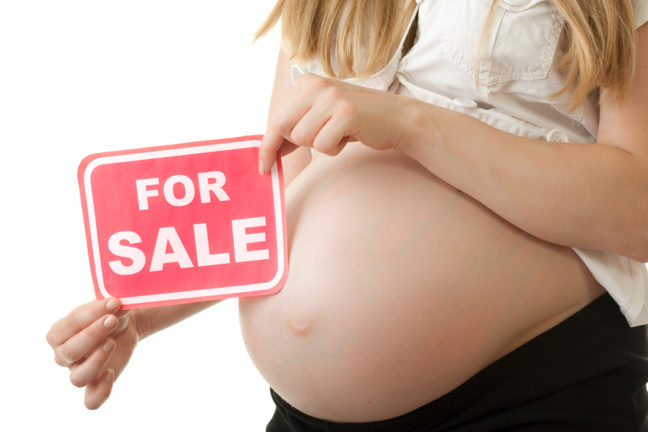
There has been a call from Czech MEPs for the country to explicitly ban commercial surrogacy to protect vulnerable women and children.
Two MPs Zuzana Ožanová and Helena Válková argue that current legislation does not sufficiently reflect the trade behind surrogacy. Although the objection to human trafficking is unanimously recognised by society, the objection to surrogacy is not.
The number of altruistic surrogacies worldwide constitutes only about two per cent of the total number of surrogacy cases, studies show. A ban on commercial surrogacy would thus practically eliminate this practice in the Czech Republic.
Surrogacy is a profitable trade that has several negative impacts on the lives of women and children, Ožanová and Válková argue. “Especially abroad, there have been cases of children being abandoned in the end or clients who did not take them over from the surrogate mothers. Typically, this was a consequence of genetic defects in these children.” The two MPs also point to the possibility of children being lost from sight and disappearing abroad, which is currently being investigated by Ukrainian authorities.

News reports suggesting that a new RSE curriculum would override ethos of Catholic and other faith schools has been described as “frightening” by the Catholic Secondary Schools Parents Association [CSSPA].
“We also find it frightening that … this Education Department under Norma Foley has not engaged with parents as partners – we find this absolutely frightening.
“We don’t know what is coming and how whatever is coming, is coming in September. Teachers have not been trained.”
Mr Whelan said gender and so-called ‘ethical’ pornography were not part of the review when it was conducted.
“I want to know what the Government means about [ethical pornography],” he said.
“Our schools are places of great acceptance of young people. What is frightening is that the minister, without consultation, is going to bring into schools these battlegrounds on these culture wars.”
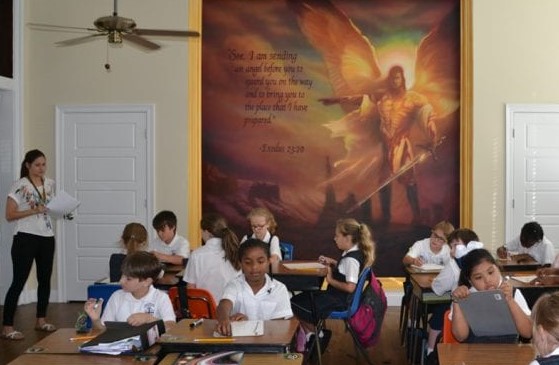
The new head of the GAA is the principal of one of Northern Ireland’s leading schools and a strong defender of Catholic education.
Jarlath Burns says he is “not against integrated education, but I am for Catholic education”.
“Catholic education is not education for Catholics; we have children who are avowed atheists, and we have Muslim and Protestant children here too. It is not the duty of Catholic education to indoctrinate and, if you have a child of Muslim faith, it is your duty to teach them their religion.”
He speaks from a deep experience of Northern Ireland’s education system. It is divided between selective grammar schools, which choose the children that perform best in exams at the end of primary school, and schools that are open to all.
Despite being non-selective, the Catholic school of 1700 pupils that Jarlath served as principal, St Paul’s in Newry, is one of the most heavily oversubscribed in Northern Ireland.
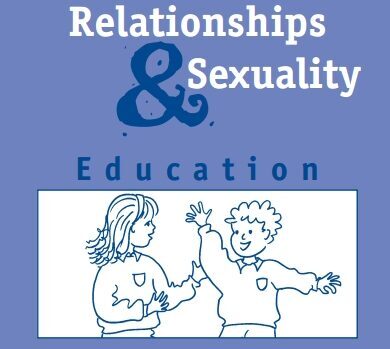
Schools will be expected to follow learning outcomes detailed in the document, says the Irish Times even if they believe it clashes with their ethos. More latitude, however, will be given to schools in the detail of how these issues are taught and the resources used. It is not clear how parents will be consulted which is required under the Education Act.
One of the ‘learning outcomes’ wants pupils to “recognise the factors and influences that shape young people’s self-identity, such as family, peers, culture, gender identity, sexual orientation, race/ethnic background, dis/abilities, religious beliefs/world-views.”
Another one says students should “appreciate the breadth of what constitutes human sexuality, and how sexual orientation and gender identity are experienced and expressed in diverse ways”.
The final curriculum specification includes some changes from an earlier draft, which referred to gender identity being experienced “along a spectrum”.
A reference to “cisgender” – which defined the term as “when someone’s gender identity aligns with the sex they were assigned at birth” – has also been omitted from the final document.

The Pontifical Academy for Life has said its president is against assisted suicide but thinks it is possible to have a “legal initiative” that would allow it to be decriminalised in Italy under “specific and particular conditions.”
The statement was issued following an outcry over a speech in which Archbishop Vincenzo Paglia defended legalising medically assisted suicide in Italy. The archbishop called it a “feasible” approach to the issue in Italian society, despite the Catholic Church’s clear teachings against it.
“Personally, I would not practice suicide assistance, but I understand that legal mediation may be the greatest common good concretely possible under the conditions we find ourselves in,” Paglia said in a speech on April 19 during the International Journalism Festival in Perugia, Italy.
It was the archbishop’s opinion that a “legal mediation” but “certainly not a moral one” is possible in order to keep assisted suicide a crime in some cases, while decriminalising it in other cases.
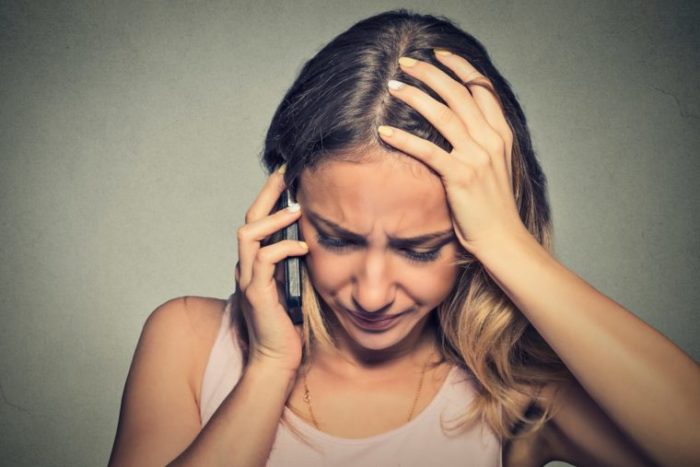
An increase in the sexually transmitted diseases chlamydia and gonorrhoea in women aged 20-24 years last year is a source of concern, according to a public health report.
It comes against a background of an overall rise in sexually transmitted infections since the Covid-19 pandemic.
Since 2019 the disease notification rate in women aged 20-24 years increased by 34pc.
Chlamydia went up by 35pc and gonorrhoea by 75pc in this age group.
The report from the Health Protection Surveillance Centre (HPSC) said notifications of sexually transmitted infections last year increased when compared to 2021, 2020 and the pre-pandemic year 2019.
“The groups most affected by were young people aged 15 to 24 and gay, bisexual and other men who have sex with men (gbMSM),” said the report.
Some infections have disproportionately affected gay and bisexual men including mpox, previously known as monkeypox.